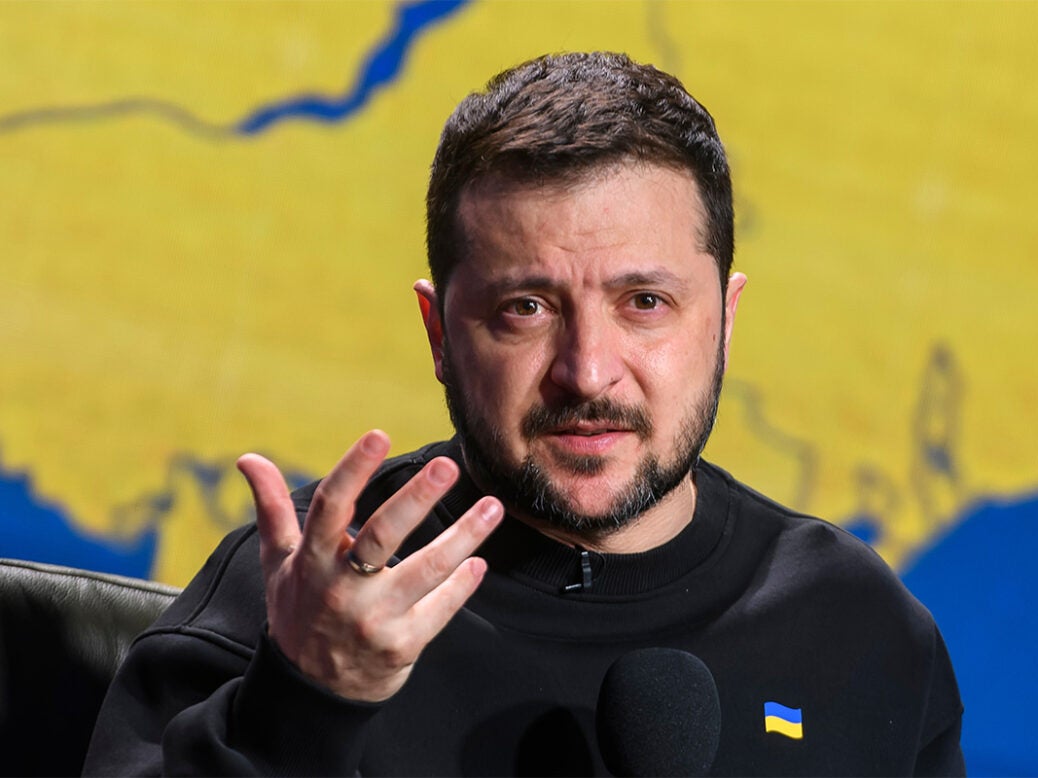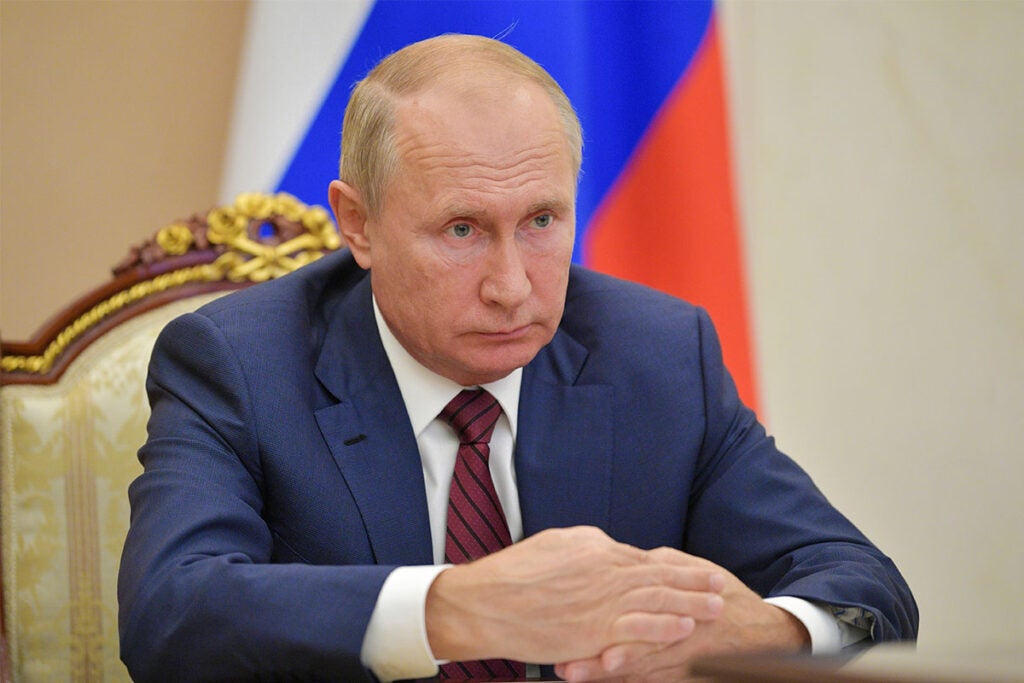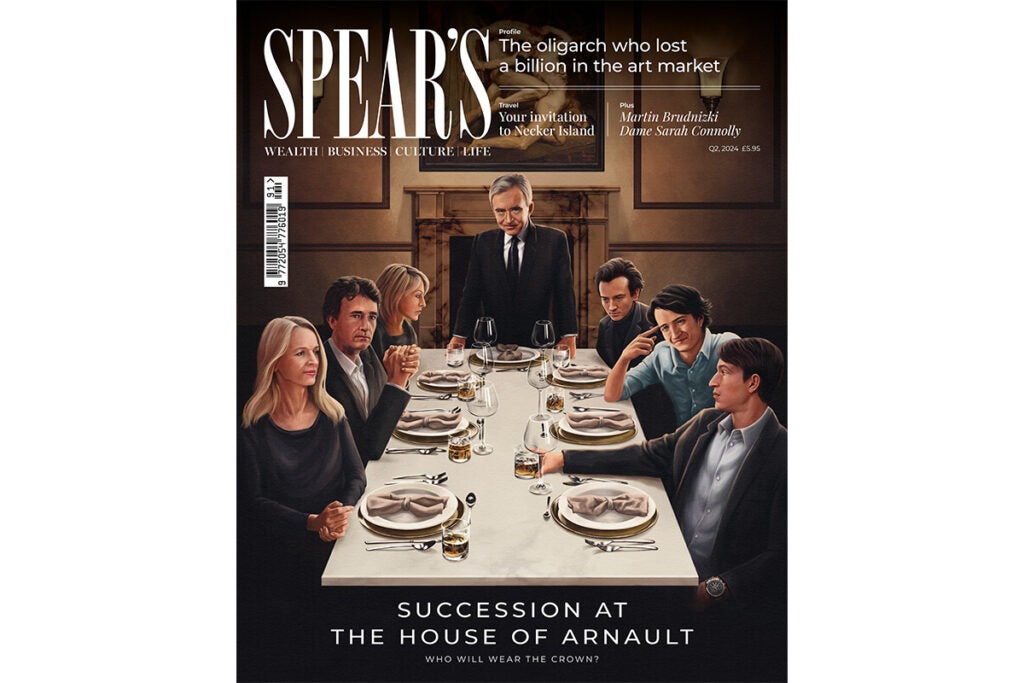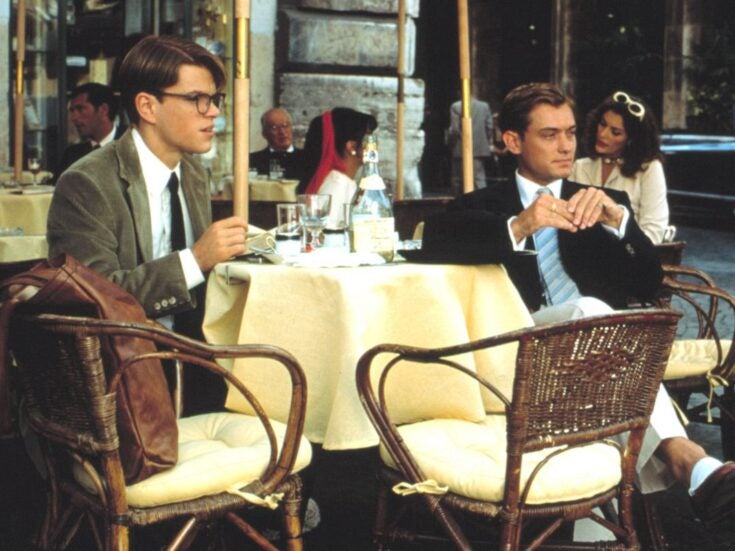
To wander the streets of a city during wartime is a surreal experience. There is strangeness not only in the contrast between rubble-strewn storefronts and the proceeding normality of resilient citizens, but also in the yawning gap between the foreign perceptions of the war and the reality on the ground.
Shortly before submitting this column, I had the opportunity to spend 10 days in Kyiv, Ukraine. In my 45 years of legal practice, I have never experienced a larger misrepresentation of reality by media and politicians than we are currently experiencing with regard to this conflict. The effect is nothing short of an illiterate war frenzy.
[See also: Two years on from Russia’s invasion, the fog of war has thickened in Ukraine]
Following the death in prison of Russian opposition leader Alexei Navalny, there really is no room left for debate over the moral bankruptcy of Vladimir Putin’s regime, nor the complete illegitimacy of its invasion and occupation of Ukraine. There is also a clear and present threat to European security from the risk that Russia might be permitted to prevail which, rightly, compels support for Ukraine.
However, a beacon of democracy and freedom Ukraine is not.
While in Kyiv I experienced a dystopian reality, where both domestic and international media covering the war distort any voice that seeks to express anything but love and non-critical support for the leadership. I am an international lawyer, currently representing the Ukrainian orthodox church, and banned from even entering Russia. I represent no Russian clients. So when, after giving one fairly vanilla interview to the Ukrainian 5 TV news outlet, I was shocked to see a segment accusing me of working with Russian entities. I was appalled when they publicised where I was staying.
[See also: When can too much transparency be a bad thing?]
You wouldn’t know it from reading the morning news in London, but Ukraine’s secret police, the SBU, operate at scale and with an intensity that has turned Kyiv into a simulacrum of East Berlin in 1985. People I met during my trip were subsequently interrogated and roughed up. I heard many accounts of tapped phones, midnight raids, ceaseless interrogations and bogus pretexts for charges.
Kyiv: the hidden war

While war rages on the front with Russia, another hidden war takes place within the cities and towns of the besieged nation, where I witnessed testimonies of individuals subjected to aggressive interrogations and intimidations. Any perceived opposition to the current leadership, real or imagined, is targeted with the full force of the SBU, while continuing Western support fails to take notice.
It would come as no surprise to anyone who has read this column over the years that I have opposed Putin’s aggressive military and energy-focused wars on the West for more than 20 years. It is easy to forget, but back around 2005 it was a challenge to convince lawmakers and business leaders of the threat presented by Putin’s Russia. His expropriation of companies was celebrated on the London Stock Exchange and among many in the German Bundestag, and by heads of government in France and Italy, to name just a few.
[See also: Russian billionaires begin legal challenges against UK sanctions]
But if we got it wrong then, we continue to get it wrong today. I would argue the West has responded to Putin in ways that only further cement his power, weakening the economic integration that has been the engine of European growth and prosperity for the past half-century. Sanctions have never worked. The severing of economic relations has also left the West with fewer levers to pull if it wants to mitigate Putin’s ability to shape affairs in the Middle East or, for that matter, Africa.
The war frenzy among media and our political leaders could be seen as a reaction of anxiety to the transition in the world order. Across the pond, President Joe Biden’s approval rating is languishing around 35 per cent despite a successful economy. Donald Trump stands a strong chance of returning to power, and by many estimates he would be far less constrained in exercising his foreign policy preferences.
[See also: Populism is on the march – again]
Ukraine needs and deserves our support, but it should apply to all Ukrainians, not just a single cult of personality. Our subliminal antagonism towards common Russian people who have had no choice in this war is discriminatory and unacceptable, while our tolerance of authoritarian behaviour when it suits our interests is embarrassingly hypocritical.
It’s a common and tired refrain, but if truth is the first casualty of war, then we should be a lot more careful about what we say, and make sure we say what we mean.
Robert Amsterdam is the founding partner of Amsterdam & Partners LLP and presents the podcast Departures with Robert Amsterdam
This column was first published in Spear’s magazine: Issue 91. Click here to subscribe







